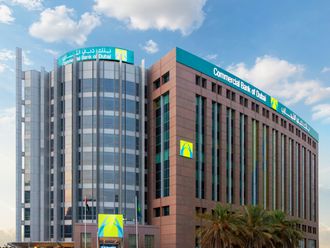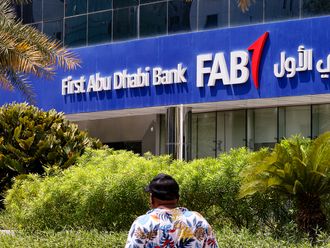
Dubai: Bangladesh's banking sector is currently undergoing a challenging phase with foreign currency reserves declining due to rising import bills against falling remittances and stable exports, S.M. Aminur Rahman, Managing Director and Chief Executive Officer of Janata Bank, said.
Immediately after the emergence of Bangladesh in 1971, the erstwhile United Bank Limited and Union Bank Limited of Pakistan were renamed Janata Bank.
Janata Bank Limited, Bangladesh's second biggest lender, has an authorised capital of 20 billion Bangladesh taka ($283.33 million), paid up capital of 50 billion taka, reserve of 10.82 billion taka and retained surplus of 5.16 billion taka.
The bank has total assets of 345.23 billion taka as of December 31, 2010. It operates four branches in the UAE.
He was in Dubai recently to promote a 50 billion taka investment programme — Bangladesh Fund — for the non-resident Bangladeshis. In an interview with Gulf News, Rahman elaborated on the state of the banking sector in Bangladesh.
Gulf News: I believe Bangladesh's banking sector is suffering a liquidity shortage as call money rates are increasing. How is the current state of the banking sector and how are you dealing with the situation?
S.M. Aminur Rahman: The sector is currently facing a slight temporary liquidity shortage. This is due to a number of factors.
As you know, a number of power plants have been commissioned recently that use furnace oil and diesel as feedstock to generate power.
So the import bills have gone up, putting pressure on the foreign exchange reserves as the export earnings and remittance flow did not rise proportionately.
This year's bank performance will also be challenged due the cap in capital that could be invested in the stock market.
The government has under taken a number of large infrastructure projects, while it also subsidises gasoline fuel and other basic imports.
As a result, the government's domestic borrowing from the banking sector has increased in recent months. This has created a temporary demand-supply mismatch in the country's economy.
However, this will soon be over as expatriate remittances are increasing while we expect export earnings to increase.
Besides, more than $2 billion worth of foreign currency from the World Bank and donor agencies is on its way, including the blocked $1 billion to be released for the construction of the Padma Bridge.
Has Bangladesh's banking sector been affected by the current European debt crisis?
Not really. The current situation has nothing to do with external factors, except, in some cases, it affected the growth of exports. Once demand for goods in the US and EU region grows, our exports will also grow.
However, if remittances are taxed by certain European governments, such as Italy, which hosts a large number of Bangladeshis, it will slightly affect remittance flows which will be channelled through informal and non-banking channels.
There are talks of allowing more commercial banks. Do you think Bangladesh needs more banks?
Yes, I have also heard that. The bankable population is growing as more and more people are using the banking channel for transactions.
I think we already have the right number of financial institutions to serve the population.
There are certain over-banked regions in the country whereas there are a large number of regions where there aren't enough branches of banks to serve the population. So, in these areas, the government might allow banks to open new branches.
What about the government's plan to set up a bank for the expatriate Bangladeshis — the NRB Bank?
This is an important move, especially for the eight million NRBs spread across the world, who collectively remit more than $11 billion through the legal channel every year that helps our economy.
This new bank will help create more foreign employment, help the NRB community and help increase the flow of remittance through the banking channel.
You manage the second largest lender in Bangladesh. How is the bank doing?
As a nationalised commercial bank, our operations are linked to the government's socio-economic objectives. Therefore, although we are licensed to operate as a commercial bank, we manage operations under lots of limitations that come with a large number of social obligations.
Despite these limitations, we have been delivering strong results. Last year we have delivered 12 billion takas gross profit, 50 per cent of which was net profit. This year, we are looking at half of that — which is still a good result considering the challenging realities on ground.
We have 872 branches spread across the country including four in the UAE, serving more than 1.5 million account holders and an additional 50,000 customers in the UAE.
Operationally, we are adding 10 more branches next year. We are also strengthening our online banking while bringing more branches online to speed up services.
We are also in the process of adding more automated teller machines (ATMs), while strengthening the bank's IT infrastructure to bring the entire banking services online.
We will soon issue and market credit cards in Bangladesh that will offer a whole lot of benefits and services.
You have a relatively good presence in the UAE. How is your operation in the UAE? Are you expanding any new services?
In the UAE, where our four branches serve 50,000 customers, we are going to install ATM machines by early next year.
We have already extended banking hours including keeping our branches open in the evening and weekends to help Bangladeshi expatriates to remit money as they usually get the weekends to send remittances.
Lenders make hay while the sun shines
Dubai: Bangladeshi lenders made huge profits out of last year's stock market boom. Most banks had invested spare capital in the market that resulted in substantial bottom-line growth last year. A market crash in January saw much of those gains evaporating into thin air.
Over the course of one year, the banking sector went from a high liquidity environment to a squeeze. The government's domestic borrowing from the banking sector is also affecting adversely impacted liquidity in the banking system.
"Despite these challenges, the banks will deliver profits and manage their balance sheets well," said S.M. Aminur Rahman, Managing Director and Chief Executive Officer of Janata Bank, citing the fact that Bangladesh is an emerging economy with lots of potential for growth.
"We might not match last year's level of profitability; however banks will continue to deliver profits. And the current situation in our economy has nothing to do with the global financial crisis or the European debt crisis," said Rahman.
Despite major infrastructure bottlenecks, which the government is working on to mitigate the country is expected to record nearly six per cent growth in gross domestic product (GDP) this year.



_resources1_16a30b3db4f_small.jpg)








